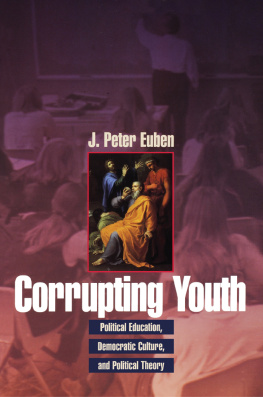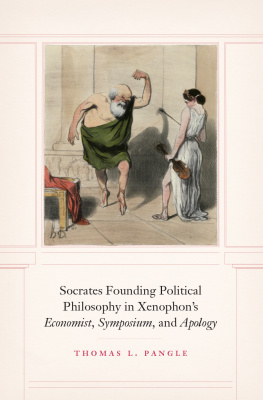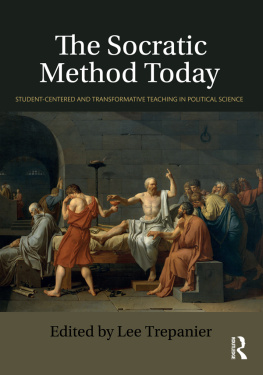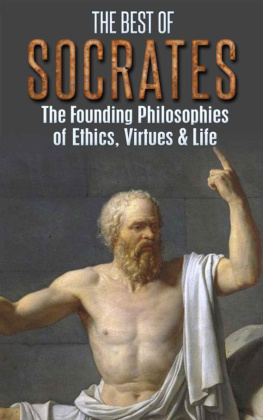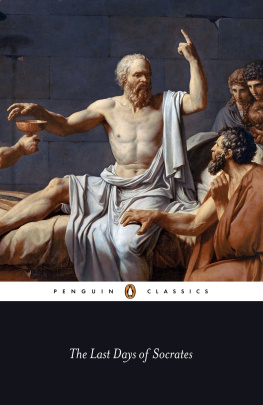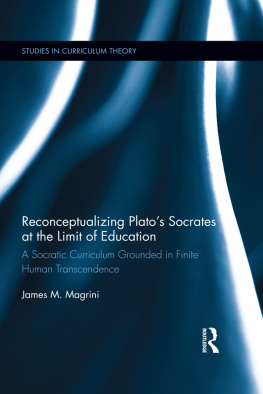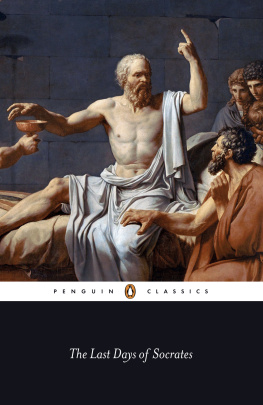ACKNOWLEDGMENTS
Writing a scholarly monograph can often feel like a lonely endeavor, but these acknowledgments are a testament to the fact that such a project is impossible without a large community of colleagues, friends, mentors, and family members.
First, though this book is not a revised version of my doctoral dissertation, I would never have been able to produce it without the guidance and support I received from friends and mentors as a graduate student in the Politics Department at Princeton University. I am especially grateful to Eric Beerbohm, John Cooper, Michael Frazer, Katie Gallagher, Luca Grillo, Nate Klemp, Ben McKean, Kevin Osterloh, Jess Paga, David Stevens, David Teegarden, and Ian Ward. Patrick Deneen first encouraged me to pursue the topic of humor for my dissertation, and I would like to thank him for all of his support during my time in graduate school. Sankar Muthu brought a keen set of eyes to my dissertation project, and has been an invaluable source of advice and support. Finally, Josh Ober agreed to chair my dissertation despite the fact that he was on his way to Stanford, and has been an enthusiastic supporter of my work ever since. He has been a model for how to bridge the worlds of classics and political science, and I am truly grateful for all of the advice, feedback, and support he has generously provided in both graduate school and after.
A fellowship at the Columbia Society of Fellows provided me with the time to conceive of the book project as it currently stands, and provided an ideal intellectual environment for starting other new projects as well. Thanks are due in particular to Joshua Dubler, Marcus Folch, Elizabeth Irwin, David Johnson, Elisabeth Ladenson, Elizabeth Scharffenberger, Melissa Schwartzberg, Katharina Volk, Nancy Worman, and Jim Zetzel.
I also had the pleasure of spending a pre-tenure sabbatical year at Washington University in St. Louis, during which I finished the first draft of the book manuscript. My thanks to both the Political Science and Classics Departments for providing a welcoming environment in which to work and grow as a scholar. In particular, I would like to thank Eric Brown, Bill Bubelis, Clarissa Hayward, Cathy Keane, Frank Lovett, Tim Moore, and George Pepe.
My friends and colleagues at the College of William & Mary have been a constant source of support since I first joined the faculty there. In particular, I would like to thank Bill Hutton, John McGlennon, Chris Nemacheck, John Oakley, Ron Rapoport, Joel Schwartz, Simon Stow, and Kristin Wustholz. Special thanks are due to Simon Stow for his friendship, and for all of his help in navigating the tenure process.
Finally, I am deeply thankful to everyone who has taught me Greek over the years, in particular Mark Buchan, Pedro de Blas, Alan Fishbone, Hardy Hansen, Colin King, Vicki Pedrick, Jonathan Ready, and Froma Zeitlin. This work would have truly been impossible, nor would it have ever been something I would have conceived of doing, had it not been for the love of the Greek language they imparted to me.
Many other individuals have read drafts of earlier versions of the manuscript. In particular, I would like to thank Ali Aslam, Ross Carroll, Jill Frank, Seth Jaffe, Dan Kapust, Joel Schlosser, Rachel Templer, Doug Thompson, and John Zumbrunnen.
Parts of the book have appeared in print in other venues previously. Much of chapter 4 appeared as Civic Laughter: Aristotle and the Political Virtue of Humor, Political Theory 41.2 (2013): 20330. A large part of chapter 1 was published in The Political Theory of Aristophanes (Albany: SUNY Press, 2014), 1327, as Seeing Democracy in the Clouds . Another part of chapter 1 appeared in Comic Authority in Aristophanes Knights , Polis 29.1 (2012): 13049. My thanks for the permission to reprint these works here.
At the University of California Press, I have had the tremendous good fortune to work with Eric Schmidt. Eric was a supporter of my project long before even the first draft of the manuscript was completed. He has been continually kind, generous, and patient during the long process from first draft to print, and I know that I would never have completed this project without his support. Thanks are also due to Maeve Cornell-Taylor, Cindy Fulton, Archna Patel, Marian Rogers, and Jolene Torr for their editorial assistance, and to Roberta Engleman for her work on the index to the book. Finally, I am especially grateful to the anonymous readers of the manuscript, who provided invaluable constructive feedback. It is certainly a better book because of their gracious and careful reading of my work.
Finally, I am deeply grateful for the love and support of my close friends and family, without which none of my professional achievements would have been possible. Thanks to Glenn Koslowsky, David Stevens, and Ian WardI could not have asked for better friends. Thanks to my parents, Dianne and John, and my sister, Kim, for their unconditional love and support. Most of all, I would like to thank my wife, Jess Paga. In addition to reading countless drafts of the manuscript, she has been the best interlocutor, friend, and companion that I could ever have hoped for.
Introduction
In Platos Theaetetus (174a4176a1), Socrates relates the tale of how Thales of Miletus, busy gazing into the heavens in order to examine the stars, fell into a well. Upon observing his predicament, a certain Thracian servant-girl mocked ( aposkpsai ) Thales, noting that while he was eager to know about things up in the heavens, he failed to perceive that which was (quite literally!) right below his feet. The same joke ( skmma ), Socrates explains, can be applied to all of those who spend their lives engaged in philosophical pursuits. For the philosopher not only fails to notice what his neighbor does; he also has no idea, Socrates continues, whether his neighbor is a human being or some other kind of creature. Rather, the philosophers attention is occupied with more abstract phenomena, with questions like What is man? and What makes him different from other creatures? Thus, whenever the philosopher is compelled to attend to more mundane matters, his lack of experience with such affairs makes him an object of laughter ( gelta parechei ), not just among Thracian servant-girls, but among the many as well.



